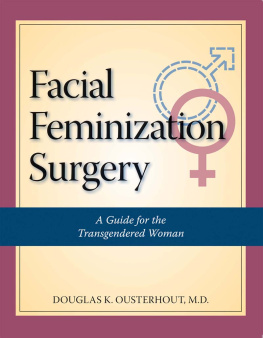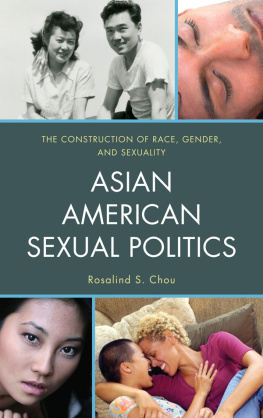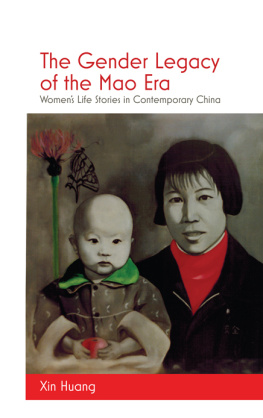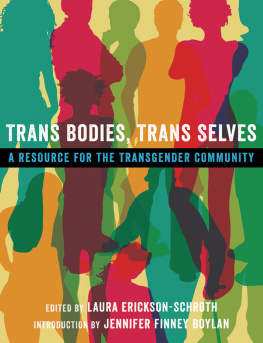Male Bodies, Womens Souls
Personal Narratives of Thailands Transgendered Youth
THE HAWORTH PRESS
Human Sexuality
Eli Coleman, PhD
Editor
Tongzhi: Politics of Same-Sex Eroticism in Chinese Societies by Chou Wah-shan
Sexuality and Gender in Postcommunitst Eastern Europe and Russia edited by Aleksandar tulhofer and Theo Sandfort
Head Over Heels: Wives Who Stay with Cross-Dressers and Transsexuals by Virginia Erhardt
Male Bodies, Womens Souls: Personal Narratives of Thailands Transgendered Youth by LeeRay M. Costa and Andrew J. Matzner
Male Bodies, Womens Souls
Personal Narratives of Thailands Transgendered Youth
LeeRay M. Costa
Andrew J. Matzner
First Published by
The Haworth Press, Inc., 10 Alice Street, Binghamton, NY 13904-1580.
Transferred to Digital Printing 2009 by Routledge
270 Madison Ave, New York NY 10016
2 Park Square, Milton Park, Abingdon, Oxon, OX14 4RN
For more information on this book or to order, visit
http://www.haworthpress.com/store/product.asp?sku=5750
or call 1-800-HAWORTH (800-429-6784) in the United States and Canada
or (607) 722-5857 outside the United States and Canada
or contact
2007 by The Haworth Press, Inc. All rights reserved. No part of this work may be reproduced or utilized in any form or by any means, electronic or mechanical, including photocopying, microfilm, and recording, or by any information storage and retrieval system, without permission in writing from the publisher.
PUBLISHERS NOTE
The development, preparation, and publication of this work has been undertaken with great care. However, the Publisher, employees, editors, and agents of The Haworth Press are not responsible for any errors contained herein or for consequences that may ensue from use of materials or information contained in this work. The Haworth Press is committed to the dissemination of ideas and information according to the highest standards of intellectual freedom and the free exchange of ideas. Statements made and opinions expressed in this publication do not necessarily reflect the views of the Publisher, Directors, management, or staff of The Haworth Press, Inc., or an endorsement by them.
Identities and circumstances of individuals discussed in this book have been changed to protect confidentiality.
Cover design by Marylouise E. Doyle.
Library of Congress Cataloging-in-Publication Data
Costa, LeeRay M.
Male bodies, womens souls : personal narratives of Thailands transgendered youth / LeeRay M. Costa, Andrew J. Matzner.
p. cm.
Includes bibliographical references and index.
ISBN: 978-0-7890-3114-3 (case : alk. paper)
ISBN: 978-0-7890-3115-0 (soft : alk. paper)
1. TranssexualsThailand. 2. TranssexualismThailand. 3. YouthSexual behaviorThailand. I. Matzner, Andrew. II. Title.
HQ77.95.T5C67 2007
306.76'8083509593dc22
2006022967
Foreword
OVERVIEW
LeeRay Costa and Andrew Matzner have made a significant contribution to the study of gender variance in Thailand. The authors offer a refreshing view of the kathoey (reframed as sao braphet song) through the lens of a reflexive anthropology moored to feminism and humanism and presented through the narrative genre. This book represents a relatively recent venue in anthropological studies of gender variance, one in which Matzner is on the forefront through his prior publication of narratives of Hawaiian mahu and male-to-female transgendered people (Matzner, 2001).
Male Bodies, Womens Souls offers a unique approach in that the narrative accounts are based on a textual rather than oral historical rendering. Twelve Chiang Mai University transgendered students (referred to as sao braphet song) were each asked to write an essay (one to ten pages in length) about their experiences with the goal of educating others about their lives as transgendered people in Thai society. Two additional narratives focusing on Rosepaper, a Chiang Mai University club for sao braphet song, were included, expanding the context for situating the twelve personal narratives. Two other reflections further augment the framework for interpreting the sao braphet song narratives. Mumu, a very open sao braphet song CMU cafeteria worker and Aom, a university woman who interviewed three sao braphet song friends, offer alternative perspectives that complicate simplistic renderings of gender variance and provide a textual terrain for comparison.
Costa and Matzners Male Bodies, Womens Souls is a valuable and much needed addition to the field of transgender studies, filling a gap in the literature for narrative voices. Although the book has much to recommend, for example, kathoey and on Thai gender ideologies, for the purpose of this Foreword I would like to limit my discussion to five particularly prominent contributions to Thai transgender studies. These include: (1) clarifying the terminology regarding Thai Sao Braphet Song (i.e., kathoey), (2) attention to issues of the power differential between researcher and researched, (3) dispelling a legacy that Thai society is extremely tolerant of the kathoey as a third gender, (4) destabilizing totalizing views of gender identity and complicating Thai gendered categories of gay and sao braphet song, and (5) demonstrating the value of the narrative approach and offering a heuristic tool for future research.
CLARIFYING THE TERMINOLOGY
The first page sets the tone for the respect and compassion that Costa and Matzner have for their sao braphet song participants. This infuses the entire book from the discussion of methods, to the reflexive and strategic incorporation of the narratives, through to the authors thematic interrogation in , Analyzing Sao Braphet Song Narratives. A number of scholars who have theorized gender variance have inherited the Thai kathoey as Thailands unofficial third gender. Into this fray, Costa and Matzner have complicated such a notion, offering a glimpse of the ambiguity that circumscribes the term kathoey for both the Thai people and scholars alike, including reference to gay men, transvestites, transsexuals, and drag queens. Indeed, Costa and Matzner challenge the currently popular usage of kathoey and propose instead the appellation sao braphet song as one preferred by their transgendered participants. This keen sense of sensitivity and knowledge comes not only from the authors narrative research project but from their general ethnographic wherewithal based on extended stays in Thailand from 1997 to 1999, returning again for four months in 2000, and on their fluency in the Thai language both written and spoken. Sao braphet song was thus selected not only because of its preference by the participants but because a nuanced understanding of the Thai language suggested ambiguous and negative connotations ascribed to the word kathoey, for example, it is more polite to use sao braphet song.
THE POWER DIFFERENTIAL BETWEEN THE RESEARCHER AND THE RESEARCHED
The authors have taken seriously anthropologys post-modern turn with its call for attention to the potential colonizing relations among researchers and their subjects (Mascia-Lees and Black, 2000: 92-94; Brightman, 1995: 511-526). Whereas anthropologists in the past discussed informants and research populations, reflexive and dialogical anthropology takes a more commensurate stance on these relations. Informants have become consultants and participants in an effort to divest anthropology of the inequalities inherent in researcher and subject relations (Skomal, 1994: 4). According to Abu-Lughod (1991: 142), this was in part spawned by the work of indigenous anthropologists and ethnic and feminist anthropologists not just because they position themselves with reference to two communities but because when they present the Other they are presenting themselves, [and consequently] they speak with a complex awareness of and investment in reception (in Bolin and Granskog, 2003).










